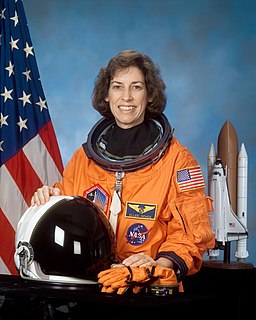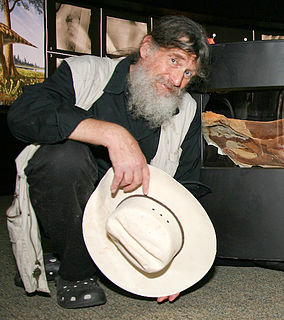A Quote by Orson Scott Card
I've seen Australia and I've lived on an asteroid and I'd take the asteroid.
Related Quotes
Global warming, along with the cutting and burning of forests and other critical habitats, is causing the loss of living species at a level comparable to the extinction event that wiped out the dinosaurs 65 million years ago. That event was believed to have been caused by a giant asteroid. This time it is not an asteroid colliding with the Earth and wreaking havoc: it is us.
On Friday the 13th, April 2029, an asteroid large enough to fill the Rose Bowl as though it were an egg cup will fly so close to Earth that it will dip below the altitude of our communication satellites. We did not name this asteroid Bambi. Instead, we named it Apophis, after the Egyptian god of darkness and death.
When you look at Earth from that one picture, the one from space, it's really a rather attractive thing. I have nothing against the planet per se. I root for the big comet or asteroid as a way of cleansing the planet. The comet or asteroid 65 million years ago is probably what gave us our opening to replace the reptiles. The greatest entertainment I have in my life is chronicling internally, not necessarily for the public, the slow dissolution of order.


































